What to Expect as Your Child Grows:
Well Child Care at 9 Years
Social Skills
- Your child may want to talk, dress, and act just like friends.
- They may not like anything "different."
- Your child may become self-absorbed and introspective.
- Enjoys sitting and talking with friends.
- May be involved in informal clubs and small groups of the same sex.
Mental Development
- Your child uses reference books with increasing skill.
- They may become immersed in a hobby or project, then drop it for another.
- Develops own standards of right and wrong. May be highly concerned about fairness.
- Children this age generally follow instructions.
Reading and Electronic Media
Limit electronic media (TV, DVDs, and computers) time. Participate with your child and discuss the content together.
Dental Care
Your child should brush and floss her teeth at least twice a day and should have regular visits to the dentist.
Safety Tips
- Fires and Burns
- Practice a home fire escape plan.
- Keep a fire extinguisher in or near the kitchen.
- Tell your child about the dangers of playing with matches and lighters.
- Teach your child the emergency phone numbers and to leave the house if a fire breaks out.
- Turn your water heater down to 120° Fahrenheit. - Pedestrian and Bicycle Safety
- All family members should ride with a bicycle helmet.
- Do not allow your child to ride a bicycle near busy roads.
- Children who ride bicycles that are too big for them are more likely to be in bicycle accidents. Make sure the size of the bicycle your child rides is right for your child. Your child's feet should both touch with the ground when your child stands over the bicycle. The top tube of the bicycle should be at least two inches below your child's pelvis.
Smoking
- Children who live in a house where someone smokes have more respiratory infections. Their symptoms are also more severe and last longer than those of children who live in a smoke-free home.
- If you smoke, set a quit date and stop. Set a good example for your child.
What to Expect at This Visit
- Your child may already be current on all recommended vaccinations.
- Children over six months of age should receive an annual flu shot.
- We will be checking your child's hearing and vision.
Next Visit
The American Academy of Pediatrics recommends that your child's next routine check-up be at ten years of age.

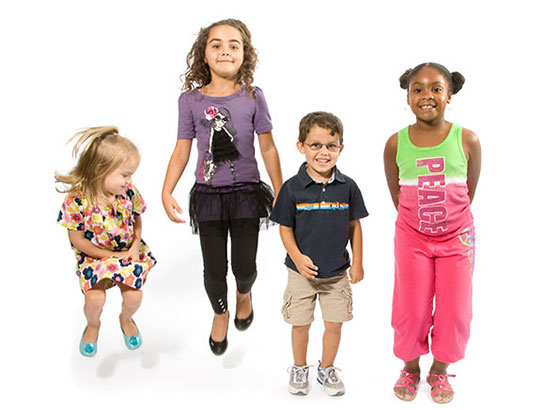
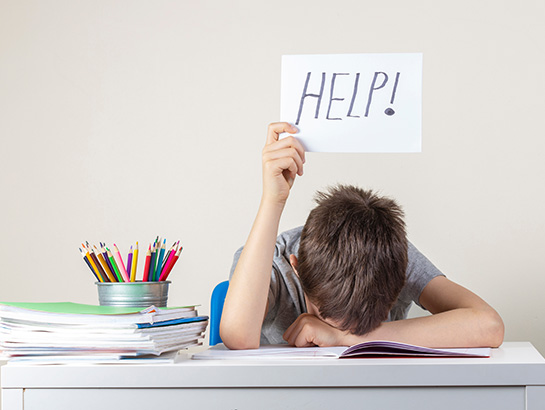
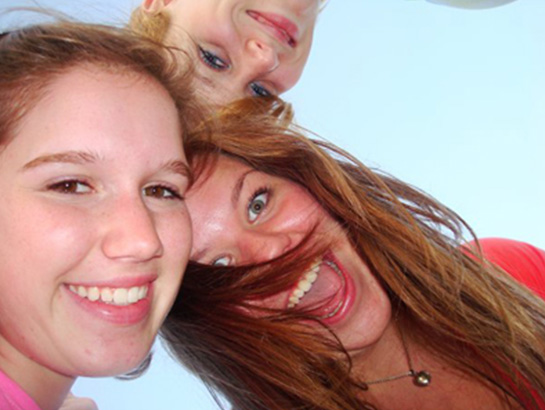
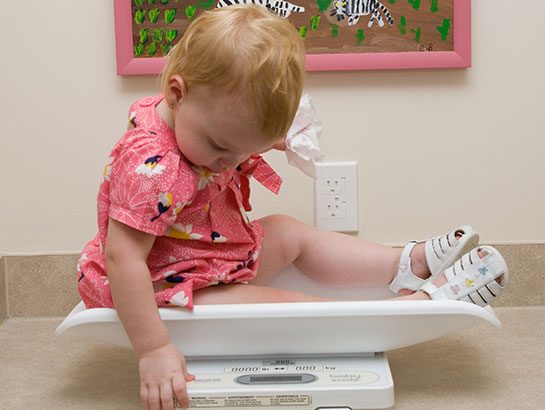
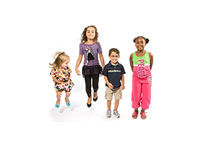





 Many children and adults eat too many calories from high-fat foods, sweets, and large portion sizes. Set a good example.
Many children and adults eat too many calories from high-fat foods, sweets, and large portion sizes. Set a good example. Nutrition is very important for children at this age. They are growing rapidly and require lots of calories.
Nutrition is very important for children at this age. They are growing rapidly and require lots of calories.
